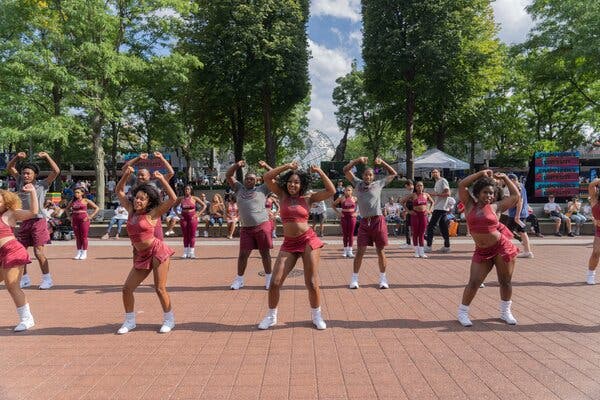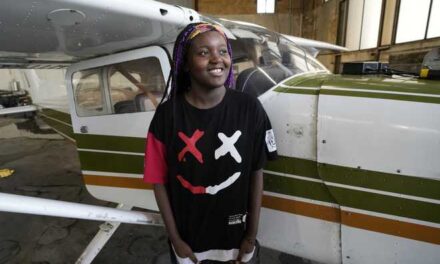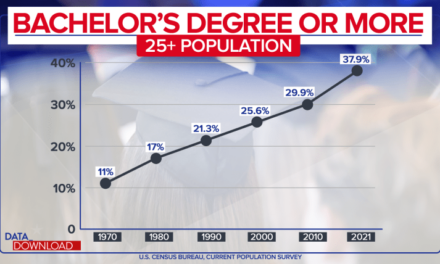Events at the tournament highlight Pride, H.B.C.U.s and equal pay for women in sports.
Good morning. It’s Friday. Today we’ll look at celebrations at the U.S. Open for social and cultural movements like Pride and H.B.C.U. Live, a tribute to historically Black colleges.

David Chen has been playing for the Gay and Lesbian Tennis Alliance for 30 years. The Pride Day celebration at the U.S. Open on Thursday left him dazzled.
“I think it’s amazing,” said Mr. Chen, 51, who had traveled to the tournament from Fort Lauderdale, Fla., and was decked out in a rainbow wristband and scarf. He said there were minority communities “that need to be brought to light.”
A big screen on the South Plaza of the Billie Jean King National Tennis Center in Flushing, Queens, announced that Thursday was Pride Day at the Open. Many of the ball people wore colorful wristbands, and Arthur Ashe Stadium was illuminated in rainbow colors. U.S. Open organizers said in a statement that they were also working to have the tournament designated as a “safe space” for the LGBTQ+ community.
The annual tournament has become a forum for celebrations of various social and cultural movements in recent years.
In the first week of the last Grand Slam tournament of the year, the U.S. Open has celebrated not only Pride, but also Historically Black Colleges and Universities and efforts to establish equity between men and women in the distribution of prize money in professional tennis, which had a turning point at the tournament 50 years ago.
This year marked the third time Pride Day and H.B.C.U. Live were celebrated at the Open. The events started in 2021, a year after the police killing of George Floyd in Minneapolis and the ensuing protests, which forced a racial reckoning in many organizations across the country. The United States Tennis Association hired a chief of diversity and inclusion in December 2020.
Spectators visiting the tournament this week have not only watched their favorite players compete, but also learned about the U.S. Open’s history around such cultural issues. A tent on the grounds showcases major accomplishments in the tournament’s history over the past several decades.
In 1948, Pancho Gonzalez became the first Latino player to win the U.S. Open men’s singles title. In 1968, Arthur Ashe became the first Black man to win the U.S. Open. In 1973, the U.S. Open became the first of tennis’s four major tournaments to award equal prize money to men and women, thanks to Billie Jean King, who raised the money herself.
Many attendees and players appeared to appreciate the commitment to highlighting progress toward equity across race, gender and sexuality in the tournament.
“I mean Billie Jean King has done so much for women’s rights, and not only for tennis — just in so many other ways, she’s an icon,” Karen Scanlan, 64, said on Monday. Ms. Scanlan, who traveled to the tournament from North Attleboro, Mass., said that tennis was the premier sport for pay equity because of Ms. King, adding that she “just moved the needle incredibly for women.”
Ms. King began demanding pay equity in the early 1970s, and her activism and behind-the-scenes fund-raising from corporate sponsors, namely Bristol-Myers, made the milestone possible.
The former first lady Michelle Obama participated in a ceremony on Monday evening, after Coco Gauff won her first round match at Arthur Ashe Stadium, to celebrate Ms. King’s legacy around pay equity. Sara Bareilles performed the song “Brave.”
“Let us all summon a fraction of the courage and tenacity of women like Billie Jean King and continue to fight for a better, more just and more equitable future for all of our children,” Ms. Obama said.
On Wednesday, many of the people who participated in the coin toss ceremonies before the matches were female athletic directors of historically Black colleges and universities, a part of the tournament’s H.B.C.U. Live event. A D.J. played music at the South Plaza, and performers, including a cheer team from North Carolina Central University, danced nearby.
Posters documented important moments in Black tennis history, such as when the American Tennis Association started its national tennis championships in 1917. The organization is known for fostering the development of Black players, including Althea Gibson, who was the first Black person to win the French Open, in 1956.
Melody Webb, the director of athletics for Norfolk State University, an H.B.C.U., participated in the coin toss before Ms. Gauff’s second-round match against Mirra Andreeva, a 16-year-old from Russia.
“I always said if tennis didn’t take the route that it took, I 100 percent would have wanted to go to an H.B.C.U.,” Ms. Gauff said during an interview after her match, adding that she had family who attended Bethune-Cookman University, an H.B.C.U. in Daytona Beach, Fla., and friends who played tennis for H.B.C.U.s.
Ms. Gauff said the events of the week were especially important given the fact that the tournament was in New York City.
“When I look into the crowd, it’s like no other tournament,” she said. “It’s very diverse, you see people of all shades watching tennis. I think if we highlight that, maybe one person can see themselves in that and hopefully be on this stage many years in the future.”
Weather
Expect a sunny day with a high in the mid-70s. At night, it will be mostly clear, with temps dropping to the mid-60s.
ALTERNATE-SIDE PARKING
In effect until Monday (Labor Day).
The latest New York news
Law & Policy
-
Migrants: On Thursday, Mayor Eric Adams staged a rally in Foley Square, just outside the Thurgood Marshall U.S. Courthouse, to call for federal officials to expedite work authorization for asylum seekers.
-
Gang member pleads guilty to killings: Two girls, Kayla Cuevas, 16, and Nisa Mickens, 15, were killed in 2016 by Enrique Portillo and two other members of MS-13, prosecutors said.
Food & Drink
-
Late night staples retire: Two longtime New York City bartenders, “Joe” Petrsoric and Kevin Duffy Philzone, were dependable anchors in our ever-changing, once-nocturnal city.
-
Plant-based: Making plant-based meals the default has reduced food-related greenhouse gas emissions by 36 percent at the New York City Health and Hospitals Corporation, the country’s largest municipal health system, the mayor’s office said. Just don’t say “vegan.”
More local news
-
Public transit: The Metropolitan Transportation Authority has vowed to make the city’s public transit system easier to navigate, but said it will take 32 years to do so. For disabled New Yorkers, the subway is still a nightmare.
-
A Son of (West) Babylon: At 80 years old, the longtime television personality, Geraldo Rivera, found himself unexpectedly unemployed after more than half a century. So he steered his boat toward the Erie Canal, seeking one last adventure.
-
A New York artist in Seoul: Ghada Amer, an Egyptian multimedia artist who lives in New York, will be featured at Frieze Seoul. “My paintings are angry,” she said.
METROPOLITAN diary
Great color
Dear Diary:
I was on my way to meet a friend for dinner. I was wearing a loose blouse of a pinkish hue.
When I got on the elevator in my Downtown Brooklyn building, there was a woman there whom I didn’t know but recognized as a fellow tenant.
“That color’s great on you,” she said. “It matches your lipstick.”
“I’m not wearing lipstick,” I said.
“Well,” she replied, “your lips are salmon.”
— June Duffy
Illustrated by Agnes Lee. Send submissions here and read more Metropolitan Diary here.
Glad we could get together here. Katherine Rosman will be here on Tuesday. — L.F.
P.S. Here’s today’s Mini Crossword and Spelling Bee. You can find all our puzzles here.
Bernard Mokam and Ed Shanahan contributed to New York Today. You can reach the team at nytoday@nytimes.com.




